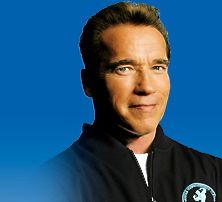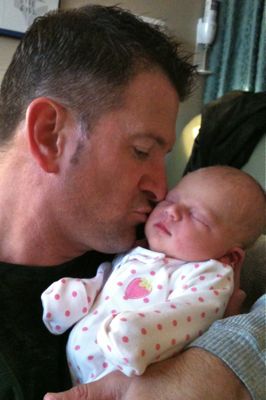It was the ultimate in junior high bus abuse. I was starting sixth grade, which meant a new school. It also meant sharing the yellow tub of torture with ninth graders. I didn’t know all the subtleties of bus politics, but I knew enough not to sit in the back—that was the domain of the ninth graders. And I knew enough not to claim a front seat—that was the place for kids who wanted to talk to the bus driver or had to keep track of their band instruments.
On the first day of school, I was scared spitless. One of the drawbacks of being a big kid—in sixth grade I was six feet tall and weighed 160 pounds—was that everyone assumed I could keep up with the older kids. I was pretty good at faking cool, but deep inside I knew those ninth graders were way out of my league. So I took my place just in front of the “love seat,” so dubbed because it was the seat above the wheel well, and anyone sitting there was teased for being “in love” with the other person in the seat. At least that had been the story on the elementary school bus. But that was when the bus was innocent, when the worst thing we could think to do was tie a GI Joe to the back of the bus so it would trail behind us, tormenting the neighborhood dogs along the way.
On the junior high bus, cruelty was reserved for the riders.
The back of the bus was ruled by the Kane boys. They were a tough lot. Earlier that summer I’d seen Davey Kane take a header off his bike onto a road where a crew had just laid a topcoat of fresh gravel. Rocks embedded in his face and he barely cried. I was almost in tears just looking at him. Cripes, I get the shivers just writing about it! That was one tough kid.
But he wasn’t the mean one. The mean one was Kevin.
It took only three stops that first morning for Kevin to hit his stride. As the door opened, I heard Kevin say, “Get ready.” I looked around, trying to figure out what he was preparing for. A girl walked on to the bus. And it started:
“Didi Dorf sucks royal! Didi Dorf sucks royal! Didi Dorf sucks royal!”
An unremarkable girl turned down the aisle, eyes on the rubber rug, shoulders hunched, as though by disappearing into herself she could make them stop. She sank into the second seat as the boys in the back repeated their chant. It must have gone on for less than a minute, but if felt like a lifetime.
I didn’t know her, and I had no idea what she had done to become the recipient of such cruelty. From her appearance it looked like she had a pretty tough life—she often came to the bus looking disheveled and on one occasion showed up still in her pajamas. (I assumed she had woken up late and her parents—or whoever she lived with—made her get on the bus anyway. It was moments like this that I felt deep love for my parents.) I didn’t know if Dorf was her full last name or a shortened mocking of it. But it didn’t matter. The barbs were headed straight for her, and she couldn’t do anything to stop them.
This happened every day during the first week. And each day more people joined in—the boys and the girls, the older kids and the younger kids. I wasn’t one of them, but that’s not necessarily something to be proud of. It wasn’t an act of bravery on my part to slide down in my seat and hope Kevin never set his sights on me. It wasn’t enough to resist the crowd; Didi needed someone to protect her from their violence. But as a twelve-year-old, I didn’t have it in me to throw myself between the abuser and his victim.
Finally on Friday, just as it seemed like the entire bus was about to take part in this verbal abuse choir, the bus driver stopped the bus, stood up, and turned around. “Stop it!” he scolded. “Why do you keep saying that to this poor girl?” Kevin, in an act befitting his brash rudeness, replied without missing a beat, “Because she does!”
The driver turned to Didi and bent down to say something to her. I like to believe he was telling her that they were wrong. That she didn’t suck. That she was valuable and important. That she was beautiful and wonderful and had world-changing potential because she was made in the very image of God. I like to believe he protected her with the truth.
 The driver must have done something more than that, because Kevin wasn’t on the bus for a week, and when he returned, there was no more chanting. I don’t know what became of Didi Dorf, but wherever she is, I hope she’s experienced enough love to override Kevin’s taunts. As for Kevin, I hope he’s experienced enough love to find forgiveness for the pain he caused a young girl.
The driver must have done something more than that, because Kevin wasn’t on the bus for a week, and when he returned, there was no more chanting. I don’t know what became of Didi Dorf, but wherever she is, I hope she’s experienced enough love to override Kevin’s taunts. As for Kevin, I hope he’s experienced enough love to find forgiveness for the pain he caused a young girl.
WHAT DO YOU BELIEVE?
This is a story that doesn’t need explaining. No one hears it and wonders why Kevin was in the wrong. No one questions whether Didi really did “suck royal.” Because none of us believe she did. None of us believe she deserved to be treated this way. As Christians, we believe that Didi is a precious child of God who is “fearfully and wonderfully made,” just like the Bible says. Even those who don’t hold to any religious understanding of humanity are stirred by stories like this—you don’t have to believe in God to believe that it’s wrong to be cruel to another human being. We have an instinctive belief that there is a goodness in all human beings that needs to be protected and preserved. There is an age-old Christian understanding of each human being as imago dei (Latin for “the image of God”). There is even a Christian tradition in which humans are thought of as icons through which we can see and connect to God.
 Yet those of us who learned a particular version of Christianity were told another story of humanity. When I became a Christian, I found out that I wasn’t all that wonderful and never had been. In fact, I was a pretty big disappointment. God may have created me, but I was deeply flawed, so flawed, in fact, that God couldn’t even look at me without seeing all my dirty sins and failures. And there was no getting out of this mess on my own. It was as deeply ingrained in me as my DNA. It was passed on to me at birth as part of the human condition.
Yet those of us who learned a particular version of Christianity were told another story of humanity. When I became a Christian, I found out that I wasn’t all that wonderful and never had been. In fact, I was a pretty big disappointment. God may have created me, but I was deeply flawed, so flawed, in fact, that God couldn’t even look at me without seeing all my dirty sins and failures. And there was no getting out of this mess on my own. It was as deeply ingrained in me as my DNA. It was passed on to me at birth as part of the human condition.
On the upside, I wasn’t alone in my sinful state—all of humanity was there with me, a big mass of us, sucking royal. Jesus could bridge the gap between God and me, but that didn’t change the rotten state of my essential being. Until I got to heaven, I would just have to accept that I was a broken, wicked sinner. That message came from a lot of people, but it didn’t seem to come from the God I read about in the Bible, the one who so loved the world, the one who made human beings the penultimate achievement in all of creation, the one who wanted to love and be loved by these very same people.
 The biblical story is one that inspires us to live out God’s love for us as we interact with one another. It’s the one that reminds us that people are good and kind and creative. It’s the one where we are moved to protect each other and care for each other and show compassion to each other. It’s the one that tells how we are created to partner with God for the redemption and restoration of all the world.
The biblical story is one that inspires us to live out God’s love for us as we interact with one another. It’s the one that reminds us that people are good and kind and creative. It’s the one where we are moved to protect each other and care for each other and show compassion to each other. It’s the one that tells how we are created to partner with God for the redemption and restoration of all the world.
 But that story has been papered over by a version of the creation story I like to call “From Very Good to Really, Really Bad.” Other people call it “The Fall.” It goes like this: God created the earth and everything in it. And it was good. Day after day the creation was good. God created human beings and it was very good. The thing is it didn’t stay that way for long. Not long after they were created, Adam and Eve disobeyed God and ate what should not have been eaten. This sin had great consequence; it was not just disobedience. It changed all that very goodness and plunged Adam and Eve into a depraved, fallen state. This fallen state somehow changed the nature of humanity. The original status was lost and replaced by original sin and a debased version of humanity that was then passed from parent to child like a genetic disease.
But that story has been papered over by a version of the creation story I like to call “From Very Good to Really, Really Bad.” Other people call it “The Fall.” It goes like this: God created the earth and everything in it. And it was good. Day after day the creation was good. God created human beings and it was very good. The thing is it didn’t stay that way for long. Not long after they were created, Adam and Eve disobeyed God and ate what should not have been eaten. This sin had great consequence; it was not just disobedience. It changed all that very goodness and plunged Adam and Eve into a depraved, fallen state. This fallen state somehow changed the nature of humanity. The original status was lost and replaced by original sin and a debased version of humanity that was then passed from parent to child like a genetic disease.
Every Christian has heard some version of this story of the fall. The technical aspects of it might be up for grabs, but the basic ideology—that human beings are inherently depraved and broken and that’s why our perfect God cannot be in a relationship with us until we are fixed up—remains the same.
It might seem like I’m exaggerating to make a point, but honestly, I’m understating the case. The official version proclaimed by the many varieties of Christian faith through the ages states that human beings start their lives as sinners who are not just bad but enemies of God. Back in the 1640s the Church of Scotland tried its hand at articulating a view of humanity in order to teach people the doctrines of the church. The result is the Westminster Confession of Faith. It’s pretty clear that it’s a sorry fate to be human. And as much as we’d like to believe we have moved beyond such extreme theology, this explanation has held so firmly that many churches still uses this catechism in their teaching. I’m not trying to pick on the Presbyterians. The Lutheran Church has its own version of this story dating back to 1530. In 1801, the Anglicans and Episcopalians decided to say it. Franklin Graham, who has taken over the ministry of his father, Billy, and is quite different from his father, was quoted in USA Today in 2006 as saying, “Man’s heart is the same everywhere. It’s evil. It’s wicked. The human soul is a putrid sore of greed, lust, and pride.”
 It’s one thing to recite these confessions and statements in a Sunday school class. It’s a very different thing to live out a theology of inherent depravity (that humans start out lacking anything good). We can say we believe that humanity is evil and depraved and that we enter the world this way. But I don’t think this fits the Christian story, nor do many of us truly hold to it. I mean, I’ve never heard of someone walking the halls of a maternity ward and saying, “Oh, what a collection we have here of dirty, rotten, little sinners who are separate from God and only capable of evil!” Rather, the impulse is to say, “What wondrous, beautiful miracles.” Or to borrow a phrase from the creation story, “It is very good.” New life just doesn’t seem to fit with this notion of inherent depravity.
It’s one thing to recite these confessions and statements in a Sunday school class. It’s a very different thing to live out a theology of inherent depravity (that humans start out lacking anything good). We can say we believe that humanity is evil and depraved and that we enter the world this way. But I don’t think this fits the Christian story, nor do many of us truly hold to it. I mean, I’ve never heard of someone walking the halls of a maternity ward and saying, “Oh, what a collection we have here of dirty, rotten, little sinners who are separate from God and only capable of evil!” Rather, the impulse is to say, “What wondrous, beautiful miracles.” Or to borrow a phrase from the creation story, “It is very good.” New life just doesn’t seem to fit with this notion of inherent depravity.
THEOLOGY – AN ATTEMPT TO EXPLAIN RUGGED BEAUTY
 And a good thing it doesn’t. If we really lived out a theology of depravity, we would have a very different society. One could argue that the logic of every person being born depraved and living as a sinner until being released from sin at the point of death makes infertility a sign of God’s kindness—one less child will have to live with the scourge of sin. It makes the death of a loved one a blessing—that sister or brother or child or parent is no longer imprisoned in sin. It makes the birth of a child a cause for sadness and sorrow as another miserable sinner comes into being—that baby is one more problem added to an already dark world. It means Didi Dorf really did suck.
And a good thing it doesn’t. If we really lived out a theology of depravity, we would have a very different society. One could argue that the logic of every person being born depraved and living as a sinner until being released from sin at the point of death makes infertility a sign of God’s kindness—one less child will have to live with the scourge of sin. It makes the death of a loved one a blessing—that sister or brother or child or parent is no longer imprisoned in sin. It makes the birth of a child a cause for sadness and sorrow as another miserable sinner comes into being—that baby is one more problem added to an already dark world. It means Didi Dorf really did suck.
The disconnect between what I was taught about the human condition and what I knew and believed to be true finally made sense when I realized that the theology of depravity was yet another hand-me-down from the fifth century and the church’s efforts to create a clear Greek-Christian hybrid. Theologians like Augustine were responding to the continuing changes in both Christianity and the broader culture. Their ideas were birthed in environments that called for particular explanations of sin and salvation.
By this time, Christianity was no longer a fringe religion practiced in a few fishing villages—under Constantine, it had become a mainstream religion in the Roman Empire. The faithful, in turn, sought to codify Christianity in order to give compelling reasons for the existence of the church. Naturally, trying to get this still-burgeoning faith to fit into an efficient and effective package was no easy task. People like Augustine, Irenaeus, and Chrysostom did their best to create a systematic approach to Christianity that would make it understandable and accessible.
The doctrine of inherent depravity was, in part, Augustine’s effort to explain the necessity of participating in the state religion—since the church was now official, people could join as a part of their citizenship. Those most committed to the faith felt compelled to help others see that the church was important in its own right, that involvement could be more than just a civic obligation. So the explanation went something like this:
All people have a need only the church can fill. People are born with a problem—depravity. That problem can only be rectified by God. But the thing was, people couldn’t get to God because they were inherently evil. So they needed a go-between. The only solution was Jesus, who fixed the problem of the original sin inheritance. And Jesus could only be accessed through the church, which administered the sacrament of baptism. It was baptism as a means of grace that freed the individual from the ramifications of depravity. It was the continuous playing out of these ideas that led the Lutheran confession to include the phrase “this inborn sickness and hereditary sin is truly sin and condemns to the eternal wrath of God all those who are not born again through Baptism and the Holy Spirit.”
 This issue became especially important in regard to the spiritual state of children. For Augustine, sin was passed on through sexual intercourse. That meant babies, though loved by God, were in a state of damnation from the moment of conception. They needed the grace of God applied to them through baptism, which could only be administered by the church. In a time of high infant mortality rates, this was a pretty good motivator.
This issue became especially important in regard to the spiritual state of children. For Augustine, sin was passed on through sexual intercourse. That meant babies, though loved by God, were in a state of damnation from the moment of conception. They needed the grace of God applied to them through baptism, which could only be administered by the church. In a time of high infant mortality rates, this was a pretty good motivator.
Of course, Augustine and company weren’t pulling all of this out from under their tunics. Augustine’s doctrine of depravity was based on a particular linguistic and cultural reading of certain passages of the Bible, which by this time had been translated from Hebrew and Greek into Latin. I don’t believe for a minute that Augustine was trying to pull one over on the faithful or that he had anything but the most faith-filled intentions as he worked out this doctrine. But the starting point of his view of humanity was a cultural assumption about duality and separation from God. He tried to provide a Christian answer to this dilemma. Like all of us (including me, with my theology of integration), Augustine read Scripture through a cultural lens, one that led him to certain conclusions about God, sin, and humanity.
At the same time, it’s no accident that the people explaining the problem had a lock on the solution. It’s the number one rule in sales: create a problem only you can see and then offer a solution that only you can provide.
For all that went into it, this view is a culturally particular theology. And it’s important for us to remember that theologies are contextual explanations of various aspects of faith. They aren’t meant to stand in for truth or our common story. Instead, they act like adapters that allow our presuppositions and experiences to fit with the story of God. They are not the story itself. They are, at best, an explanation of the story for a given place and time.
By definition, theologies are always limited and biased. And it’s a good thing they are. Good theology makes sense of things that don’t seem to make sense. But the things that don’t make sense change with each generation, with each location. The Greco-Roman world had a terrible time making their assumptions of human frailty and limitation gel with the story that humans are created in the image of God. So the theology of depravity made sense to people who held a view of humans as being something less than God had intended. It answered significant questions about the church’s role in saving people, which had real benefit in a world where conversion to the faith was now an act of citizenship. However, the rationale for this view of humanity has expired, and so ought the theology that grew out of it.
WELCOME TO A BETTER STORY
 There is a better story, and it’s being told every day, but not necessarily by those who claim to speak for God. This hit me one Sunday morning while I was watching Meet the Press. A commercial came on for GE Healthcare. It’s the one that begins with a tight close-up of a baby. He has an “every baby” look to him, with no clearly defined ethnicity. He’s just plain cute. Then the narration begins: “Welcome to the earth. It’s a great time to be alive.” The narrator goes on to talk about all that might be possible in this little guy’s lifetime— driving a car powered by water, that sort of thing. The narration continues with this message of hopeful potential as the scene cuts to a wide shot of the baby. He is in a carrier on his mother’s back facing another baby who is in a carrier on his father’s back. As the two babies reach toward each other and give a high-five, the narrator concludes, “This just might be the best time to be alive. Welcome to the earth.”
There is a better story, and it’s being told every day, but not necessarily by those who claim to speak for God. This hit me one Sunday morning while I was watching Meet the Press. A commercial came on for GE Healthcare. It’s the one that begins with a tight close-up of a baby. He has an “every baby” look to him, with no clearly defined ethnicity. He’s just plain cute. Then the narration begins: “Welcome to the earth. It’s a great time to be alive.” The narrator goes on to talk about all that might be possible in this little guy’s lifetime— driving a car powered by water, that sort of thing. The narration continues with this message of hopeful potential as the scene cuts to a wide shot of the baby. He is in a carrier on his mother’s back facing another baby who is in a carrier on his father’s back. As the two babies reach toward each other and give a high-five, the narrator concludes, “This just might be the best time to be alive. Welcome to the earth.”
 I was struck by how different this message was from the one I feared was being heard in churches that same morning. Someone flipping channels at home would hear a message that said, “This is a wonderful world, and we’re so glad you’re here.” But what was happening in Sunday school rooms and church sanctuaries around the country? Were the people there hearing that the world is in deep trouble, that things have never been as bad as they are right now and are only getting worse? Were they being told they were sinners who were only contributing to this misery? Was someone telling them that if they wanted to find the source of darkness in the world, they should start with a look in the mirror?
I was struck by how different this message was from the one I feared was being heard in churches that same morning. Someone flipping channels at home would hear a message that said, “This is a wonderful world, and we’re so glad you’re here.” But what was happening in Sunday school rooms and church sanctuaries around the country? Were the people there hearing that the world is in deep trouble, that things have never been as bad as they are right now and are only getting worse? Were they being told they were sinners who were only contributing to this misery? Was someone telling them that if they wanted to find the source of darkness in the world, they should start with a look in the mirror?
 That’s why we need to tell that better story, the story that lets us know that we are created in the image of God, as partners and collaborators with God. This very well might be the best time to be alive, not because of new health care efforts but because we are here—you and me—and we are to join with God in the world. We live in a time of hope because we are God’s people and God is a God of possibilities, of potential, of goodness. When we give up on ourselves, on our inherent connection to this God who created us to live in partnership with him, then we give up on God as well.
That’s why we need to tell that better story, the story that lets us know that we are created in the image of God, as partners and collaborators with God. This very well might be the best time to be alive, not because of new health care efforts but because we are here—you and me—and we are to join with God in the world. We live in a time of hope because we are God’s people and God is a God of possibilities, of potential, of goodness. When we give up on ourselves, on our inherent connection to this God who created us to live in partnership with him, then we give up on God as well.
My hope is that we never lose sight of what it means to be created in the image of God.
 When I was in sixth grade, I didn’t know how to stand up to the bullies at the back of the bus. But the deeper I go in my Christianity, the more I feel compelled to be the bus driver. I can’t sit by as someone tells me, my children, my friends, that they suck, that they are evil to the core. And I certainly can’t stand to have that perverted message be the imposter of the gospel of Jesus. I need to be someone who steps between the abusive accusations and the victim. I need to be someone who whispers the truth.
When I was in sixth grade, I didn’t know how to stand up to the bullies at the back of the bus. But the deeper I go in my Christianity, the more I feel compelled to be the bus driver. I can’t sit by as someone tells me, my children, my friends, that they suck, that they are evil to the core. And I certainly can’t stand to have that perverted message be the imposter of the gospel of Jesus. I need to be someone who steps between the abusive accusations and the victim. I need to be someone who whispers the truth.
 Doug Pagitt refers to himself online as a social and theological entrepreneur. He pastors as Solomon’s Porch, a holistic missional Christian community in in Minneapolis, Minnesota. He is one of the founders of Emergent Village. He and his wife Shelley are parents of four young adults. This article is reminissant of his years at North Junior High. Doug offers more on his website.
Doug Pagitt refers to himself online as a social and theological entrepreneur. He pastors as Solomon’s Porch, a holistic missional Christian community in in Minneapolis, Minnesota. He is one of the founders of Emergent Village. He and his wife Shelley are parents of four young adults. This article is reminissant of his years at North Junior High. Doug offers more on his website.





